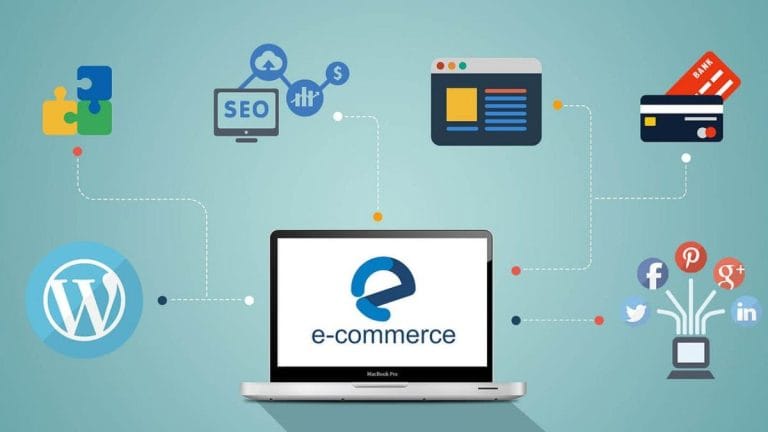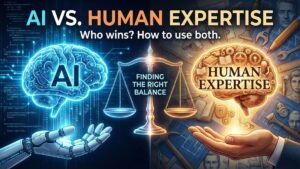In today’s competitive digital age, a website isn’t just about great design or content. It’s about how easily people can find it, use it, and engage with it. This is where Search Engine Optimization (SEO) meets web development, creating a powerful duo that drives traffic, boosts visibility, and enhances user experience. Let’s explore how SEO fits into the web development process and why every developer should consider it a vital component of their work.
Introduction to SEO and Web Development
What is SEO?
Search Engine Optimization (SEO) refers to the strategies and techniques used to improve a website’s visibility on search engine results pages (SERPs). Think of SEO as the map that helps users discover your website amidst billions of other web pages. It’s not just about ranking—it’s about providing users with a seamless and valuable experience.
Understanding Web Development
Web development involves creating, building, and maintaining websites. It includes everything from coding and design to server configurations. Developers play a pivotal role in ensuring that a website is not only functional but also optimized for search engines.
The Intersection of SEO and Web Development
SEO and web development are two sides of the same coin. A well-developed website with poor SEO will struggle to attract traffic, while a poorly built site with good SEO may fail to engage users. When done correctly, the combination leads to a robust, user-friendly platform that ranks well on search engines.
Key Components of SEO in Web Development
Website Architecture and SEO
Website architecture dictates how search engines crawl and index your site. A clear, logical structure with an easy-to-navigate hierarchy ensures that search engines can easily understand and rank your content.
Mobile Responsiveness
With mobile traffic surpassing desktop, having a mobile-friendly website is no longer optional. Google prioritizes mobile-first indexing, meaning the mobile version of your site is considered for rankings. A responsive design ensures your site adapts to all devices, providing a consistent user experience.
Website Speed and Performance
Did you know that a one-second delay in loading can reduce conversions by 7%? Speed matters—not just for user satisfaction but also for SEO rankings. Optimizing images, minimizing code, and leveraging caching are some ways to ensure your site is lightning-fast.
On-Page SEO Essentials for Developers
Optimizing Meta Tags
Meta tags like titles, descriptions, and headers act as a guide for search engines. A well-crafted title tag can significantly impact click-through rates, while clear headers improve readability and relevance.
URL Structure and Best Practices
Short, descriptive URLs that include keywords are not just user-friendly—they’re also SEO-friendly. Avoid dynamic parameters and stick to a clean, readable structure for maximum impact.
Implementing Schema Markup
Schema markup, or structured data, helps search engines understand your content better. It enables rich snippets, such as star ratings and event details, which can boost click-through rates.
Technical SEO Considerations
XML Sitemaps and Robots.txt
An XML sitemap acts as a roadmap for search engines, guiding them to your most important pages. On the other hand, the robots.txt file tells search engines which parts of your site to avoid. Both tools are critical for effective crawling and indexing.
HTTPS and Secure Protocols
Security is a ranking factor. Websites with HTTPS not only protect user data but also enjoy better rankings compared to non-secure sites.
Handling 404 Errors and Redirects
Broken links and 404 errors can hurt your SEO and frustrate users. Implementing proper redirects and monitoring your site for errors ensures a smooth experience and retains link equity.
Content and Its Role in SEO for Developers
Importance of Quality Content
Content remains king. High-quality, informative, and engaging content keeps users on your site longer and reduces bounce rates, signaling to search engines that your site is valuable.
Integrating Keywords Strategically
Keywords act as the bridge between user queries and your content. However, keyword stuffing is a big no-no. Instead, focus on natural placement and relevance.
The Power of Multimedia
Visual elements like videos and images can make your content more engaging. Optimize file sizes, use descriptive alt texts, and ensure multimedia enhances your overall SEO strategy.
Tools and Resources for SEO in Web Development
Essential SEO Tools
Tools like Google Search Console, Ahrefs, and Screaming Frog provide insights into your site’s performance, helping you fix issues and stay ahead of the competition.
Analytics for Continuous Improvement
Regularly analyzing your traffic, bounce rates, and conversion rates allows you to fine-tune your strategies and improve your site’s SEO over time.
SEO Challenges in Web Development
Common SEO Mistakes
Some common mistakes include slow load times, unoptimized images, and duplicate content. Avoiding these pitfalls can save your site from penalties.
Balancing Aesthetics and Functionality
A visually stunning site that’s hard to navigate won’t rank well. The key is to find harmony between design and SEO best practices.
Future Trends in SEO and Web Development
AI and SEO
AI-powered tools like ChatGPT are reshaping how we optimize content and analyze performance. Staying updated with these trends is essential for future-proofing your strategies.
Voice Search Optimization
Voice search is gaining popularity. Structuring content to answer common questions and using natural language can give you an edge.
Core Web Vitals and Beyond
Google’s emphasis on metrics like Largest Contentful Paint (LCP) and Cumulative Layout Shift (CLS) highlights the importance of user experience in rankings.
Conclusion
SEO is not an afterthought—it’s an integral part of web development. By combining technical expertise with SEO best practices, developers can create websites that not only rank well but also provide exceptional user experiences. Whether you’re a seasoned developer or just starting, understanding SEO’s role in web development will set you up for long-term success.
FAQs
What is the relationship between SEO and web development?
SEO ensures that a website is discoverable and user-friendly, while web development provides the foundation for implementing SEO strategies.
How does website speed impact SEO?
Faster websites offer better user experiences, reduce bounce rates, and are favored by search engines for higher rankings.
What are the best SEO practices for developers?
Focus on mobile responsiveness, clean code, optimized images, and a logical site structure.
Why is HTTPS important for SEO?
HTTPS secures user data and is a ranking factor for search engines, improving trust and credibility.
What are some key SEO tools for web developers?
Tools like Google Analytics, SEMrush, and Yoast SEO provide valuable insights and optimization recommendations.




